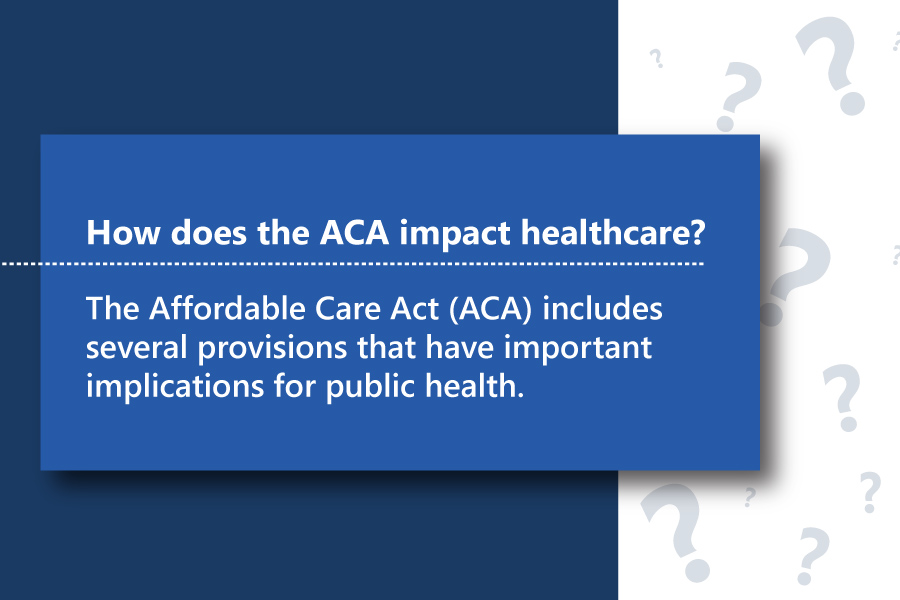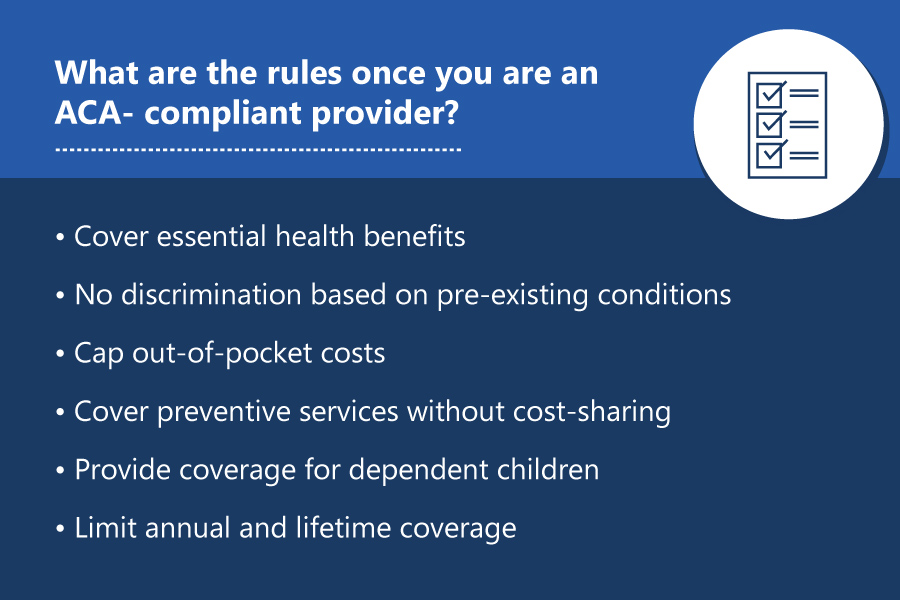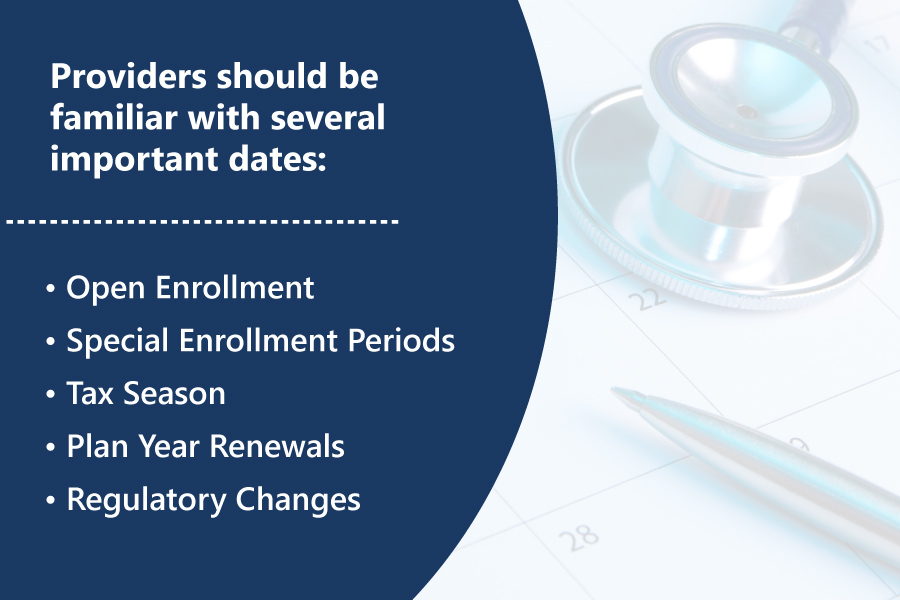Q&A with ProspHire’s Caitlin Nicklow on the Affordable Care Act
Let’s have a conversation
The Affordable Care Act (ACA) has had a profound impact on the landscape of healthcare in the United States. With provisions aimed at increasing access to health insurance, preventing discrimination by insurance providers enhancing preventive care, lowering healthcare costs and improving healthcare quality, the ACA reshaped how Americans access and receive healthcare services. ProspHire’s ACA practice leader, Caitlin Nicklow delves into the intricacies of ACA compliance and the rules and requirements for health insurance providers, key dates to be aware of and the timeline for launching an ACA-compliant health plan.
How does the ACA impact healthcare?
The Affordable Care Act (ACA) includes several provisions that have important implications for public health:
- Increased access to health insurance: The ACA has expanded access to health insurance by creating marketplaces where individuals can purchase affordable health insurance plans and by expanding eligibility for Medicaid. As a result, millions of previously uninsured Americans gained access to health insurance.
- Prohibiting insurance discrimination: The ACA prohibits health insurance providers from discriminating against individuals with pre-existing conditions and it also prohibits health insurance providers from charging higher premiums based on factors such as age, gender or health status.
- Enhancing preventative care: The ACA has emphasized the importance of preventative care and it requires most health insurance providers to cover preventative services such as cancer screenings and immunizations without cost-sharing.
- Lowering healthcare costs: The ACA includes provisions that aim to lower healthcare costs, including measures to reduce waste, fraud and abuse in the healthcare system and initiatives to encourage more efficient and coordinated care. Many individuals are also eligible for financial assistance in the form of subsidies and cost sharing reductions.
- Improving healthcare quality: The ACA incentivizes healthcare providers to improve the quality of care they deliver by tying reimbursement to performance on quality measures.

Is there a mandate that all health insurance providers need to provide ACA-compliant health plans?
Yes, under the Affordable Care Act (ACA), also known as Obamacare, all health insurance providers are required to offer ACA-compliant health plans in the individual and small group markets. ACA-compliant health plans must meet certain requirements, such as covering essential health benefits, not discriminating against individuals with pre-existing conditions and capping out-of-pocket costs for covered services.
The individual mandate, which required most Americans to have health insurance or pay a penalty, was repealed in 2017. However, the requirement for health insurance providers to offer ACA-compliant plans remains in place.
It is worth noting that certain types of health insurance plans, such as short-term health plans and health care sharing ministries, are not required to comply with the ACA's regulations. These plans may offer lower premiums but may not provide the same level of coverage or consumer protections as ACA-compliant plans.
What are the rules once you are an ACA-compliant provider?
Once a health insurance provider offers an ACA-compliant health plan, they must adhere to certain rules and regulations. Here are some of the key rules for ACA-compliant providers:
- Cover essential health benefits: ACA-compliant health providers must cover ten essential health benefits, which include ambulatory patient services, emergency services, hospitalization, maternity and newborn care, mental health and substance use disorder services, prescription drugs, rehabilitative and habilitative services and devices, laboratory services, preventive and wellness services and chronic disease management and pediatric services.
- No discrimination based on pre-existing conditions: Health insurance providers cannot discriminate against individuals with pre-existing conditions. This means they cannot deny coverage or charge higher premiums based on an individual's health status.
- Cap out-of-pocket costs: ACA-compliant health insurance providers must cap out-of-pocket costs for covered services. For the 2023 plan year, the ceiling for out-of-pocket services is $9,100 for individuals and$18,400 for families. In 2024, these amounts will grow to $9,450 and $18,900, respectively.
- Cover preventive services without cost-sharing: Health insurance providers must cover certain preventive services without requiring cost-sharing, such as copays or deductibles. Examples of these services include mammograms, colonoscopies and immunizations.
- Provide coverage for dependent children: Health insurance providers must provide coverage for dependent children up to age 26.
- Limit annual and lifetime coverage: Health insurance providers cannot impose annual or lifetime dollar limits on essential health benefits.
These are just some of the key rules for ACA-compliant providers. There are additional rules related to network adequacy, rate review and other aspects of health insurance regulation that providers must also follow to maintain compliance with the ACA.

Are there key dates that health insurance providers need to be aware of throughout the year?
Providers should be familiar with several important dates:
- Open Enrollment: Open Enrollment is the period when individuals can enroll in or change their health insurance plans for the following year. The dates for Open Enrollment may vary from year to year, but it generally takes place in the fall. For 2024 coverage, Open Enrollment begins November 1, 2023 and ends January 15, 2024, in most states.
- Special Enrollment Periods: Special Enrollment Periods (SEPs) allow individuals to enroll in or change their health insurance plans outside of Open Enrollment if they experience certain qualifying life events such as getting married, having a baby or losing their job-based health coverage. SEPs are available throughout the year but individuals typically have a limited amount of time to enroll after their qualifying event.
- Tax Season: Health insurance providers need to be aware of the ACA-related tax forms that must be issued to individuals and the IRS during tax season. For example, individuals who received premium tax credits to help pay for their health insurance during the year will need to file Form 8962 to reconcile the amount of the credit they received with their actual income for the year.
- Plan Year Renewals: Health insurance providers must renew their ACA-compliant health plans each year. The certification process typically runs May through September.
- Regulatory Changes: The ACA is subject to ongoing regulatory changes, which can affect health insurance providers and their customers. Providers should stay up to date on any regulatory changes and be prepared to make changes to their plans or operations as necessary.

What is required to set up an ACA-compliant health plan?
ACA-compliant health plans must follow rules established by the Affordable Care Act.
- Obtain licensure: Health insurance providers must obtain licensure from the state(s) in which they operate. State insurance departments oversee the licensing process and ensure that providers comply with state regulations.
- Cover essential health benefits: ACA-compliant health plans must cover ten essential health benefits, which include ambulatory patient services, emergency services, hospitalization, maternity and newborn care, mental health and substance use disorder services, prescription drugs, rehabilitative and habilitative services and devices, laboratory services, preventive and wellness services and chronic disease management, and pediatric services.
- Comply with rate review requirements: Health insurance providers must comply with rate review requirements, which vary by state. These requirements typically require providers to submit rate increase requests to state insurance departments for approval.
- Limit out-of-pocket costs: ACA-compliant health plans must cap out-of-pocket costs for covered services. For the 2023 plan year, the ceiling for out-of-pocket services is $9,100 for individuals and$18,400 for families. In 2024, these amounts will grow to $9,450 and $18,900, respectively.
- Comply with network adequacy requirements: Health insurance providers must ensure that their provider networks are adequate to meet the needs of their customers. Network adequacy requirements vary by state and may include minimum provider-to-patient ratios, distance standards and other criteria.
- Comply with reporting requirements: Health insurance providers must comply with various reporting requirements, including the submission of data on the number of individuals enrolled in their plans, the cost of coverage, and the number of claims denied.
What is the timeline to launch an ACA-compliant health plan?
The timeline to launch an ACA-compliant health plan can vary depending on several factors such as the size and complexity of the organization, the state in which it operates and the level of existing infrastructure and resources. However, here are some general steps and timelines that healthcare insurance providers typically follow when launching an ACA-compliant health plan:
- Develop a plan: The first step in launching an ACA-compliant health plan is to develop a business plan that outlines the goals, objectives and strategies for the new plan. This process typically takes several months and may involve market research, competitor analysis and other activities.
- Obtain licensure: Health insurance providers must obtain licensure from the state(s) in which they operate. The licensure process can take several months and may involve completing an application, paying fees and providing documentation such as financial statements, business plans and marketing materials.
- Develop provider networks: Health insurance providers must develop provider networks that are adequate to meet the needs of their customers. This process can take several months and may involve recruiting new providers, negotiating contracts and setting up systems for provider credentialing and claims processing.
- Develop products and pricing: Health insurance providers must develop products and pricing that comply with the ACA's regulations. This process can take several months and may involve developing new products or modifying existing ones, conducting actuarial analyses and setting premiums.
- Implement systems and processes: Health insurance providers must implement systems and processes to support their new ACA-compliant health plan. This can include developing and implementing new technology systems, hiring staff and establishing procedures for claims processing, customer service and compliance.
Overall, the timeline to launch an ACA-compliant health plan can range from several months to a year or more, depending on the complexity of the organization and the state in which it operates. It is important to work closely with legal and regulatory experts to ensure compliance with all applicable regulations and to allow sufficient time for the licensure and implementation process.
Does ProspHire have experience launching ACA-Compliant plans?
ProspHire has launched fully certified and accredited ACA plans in 5 states, with additional growth in our portfolio of existing clients. We have extensive experience driving end-to-end current state assessments to analyze the regulatory and operational gaps organizations must fulfill in pursuit of an ACA-compliant plan and we have the implementation and change management knowledge to close those gaps in limited timelines. Additionally, our subject matter expertise in guiding organizations to achieve success in medical management and quality care delivery can help to get the plan firmly grounded at launch.

How can ProspHire help you throughout this process?
ProspHire will work with you to understand your unique circumstances and identify the best method to achieve your ACA goals, whether as an extension of your teams or as a completely outsourced program management group while you work to hire the right people to operate the plan at go live. Following an in-depth current state assessment and comparison to State and/or Federal guidelines, you will receive a roadmap and step-by-step project plan to manage the various regulatory, operational and technological requirements necessary for certification and/or accreditation, operational readiness and plan go live. Post go live support can also ensure you are set with a clear plan on maintaining your status as a Qualified Health Plan, helping to develop the tools and practices to ensure your ACA plan is operating at its highest level and help you target and execute on plan expansions for the following years.
ProspHire
216 Blvd of the Allies, Sixth Floor
Pittsburgh, PA 15222
412.391.1100
[email protected]
Quick Links
© 2024 ProspHire, LLC. All Rights Reserved / Terms of Use / Privacy Policy









